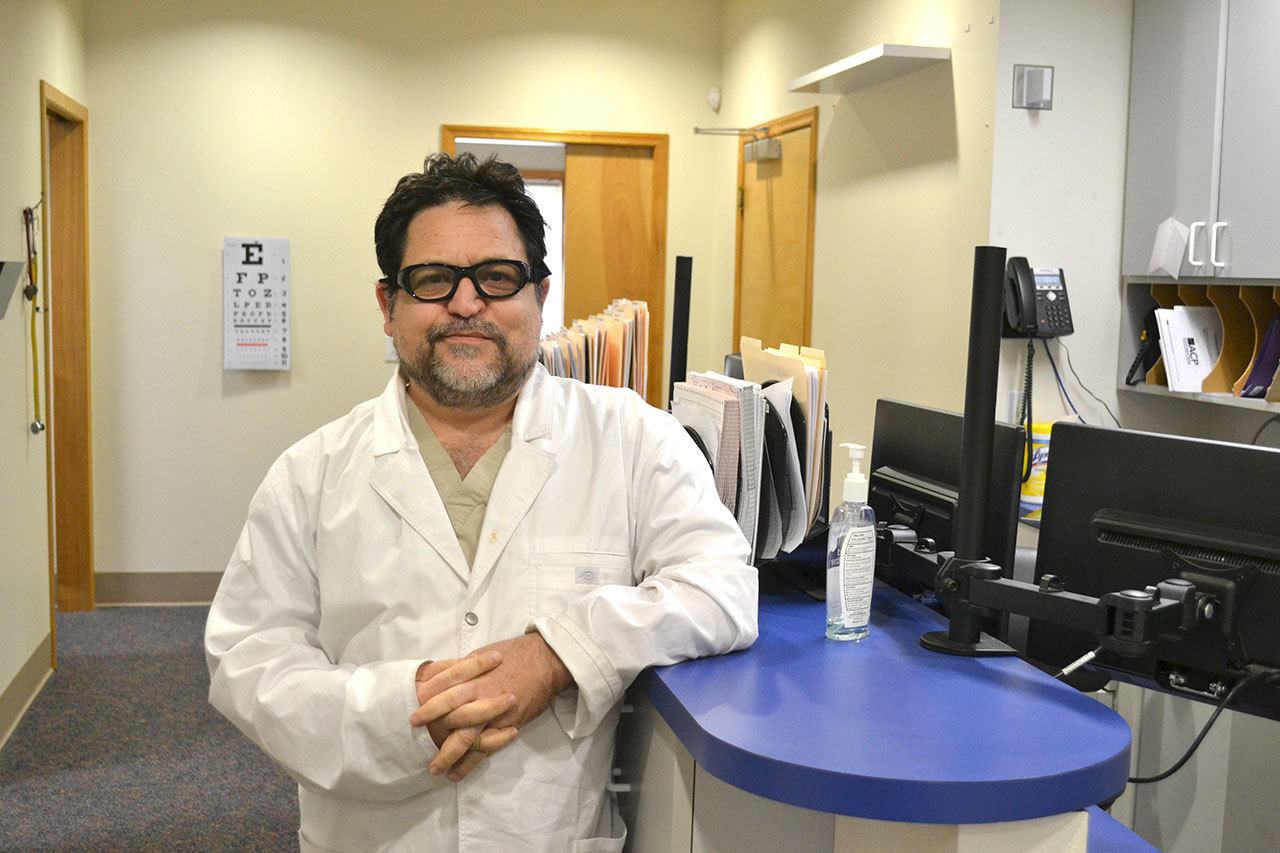Dr. George Mathew of Pacific Family &Internal Medicine, 522 N. Fifth Ave., looks to help prevent heart attacks and strokes in a big way from a small town.
His practice is one of 516 awardees nationwide selected by the Centers for Medicare &Medicaid Services to help reduce the risks for heart attacks and strokes among millions of Medicare fee-for-service beneficiaries.
As one of one eight practices in Washington, he’ll participate in the Million Hearts® Cardiovascular Disease Risk Reduction Model working to decrease cardiovascular disease risk by assessing an individual patient’s risk for heart attack or stroke and applying prevention interventions.
“It’s a big deal because it’s a one-of-a-kind program that’s done thoughtfully,” Mathew said.
“Technology and science has progressed and we know about (strokes and heart attacks) and it kills a lot of our citizens so we need to find out what is going on. Why is this happening? To do that, we need a large scale program that looks at a large number of patients.”
For the model, practitioners will use a data-driven, predictive approach to generate personalized risk scores and develop specific plans with patients to reduce the risk of having a heart attack or stroke.
“It’s kind of a clinical trial without the trial part,” Mathew said. “There is no particular treatment being tested. It’s about getting the data and assessing the baseline risk.”
Mathew is one of about 20,000 practitioners participating in the program model along with 3.3 million Medicare patients over five years.
He said he has about 1,000 Medicare patients and for those to participate in the model they must be ages 40-79 and receive Medicare.
Practitioners like Mathew will work with patients to identify the best approach or approaches to reducing their risk of having a heart attack or stroke through methods such as smoking cessation interventions, blood pressure management or cholesterol-lowering drugs or aspirin. He’ll discuss the benefits of interventions with patients who will receive a personalized risk modification plan targeting risk factors.
Mathew said the model is a competition of sorts to provide better outcomes with less cost.
According to the Centers for Disease Control and Prevention, heart disease is the leading cause of death and a major contributor to disability in the nation and 1 in 3 deaths are caused by heart attacks and strokes, resulting in over $300 billion of health care costs each year.
After Mathew categorizes patients as high, moderate or low risk, he’ll continue to assess them and if they improve, there will be a financial incentive for his practice possibly each year.
“It’s not a money-maker,” he said. “It is the prestige and recognition and more access to high technology and data. For example, our information is going to be entered into a large registry. I will have access to information that can make our efforts to provide high levels of care higher, easier. And I will have access to tools that are expensive.”
Through the end of the year, Mathew and his contracted practitioner Dr. James Hult are training under the program model, which begins Jan. 1, 2017.
Mathew opened Pacific Family &Internal Medicine in September 2013 and has practiced medicine in Sequim since the end of 2010.
For more information on the Million Hearts® Cardiovascular Disease Risk Reduction Model, visit https://millionhearts.hhs.gov.
For more information about Pacific Family &Internal Medicine, call 775-3515.



